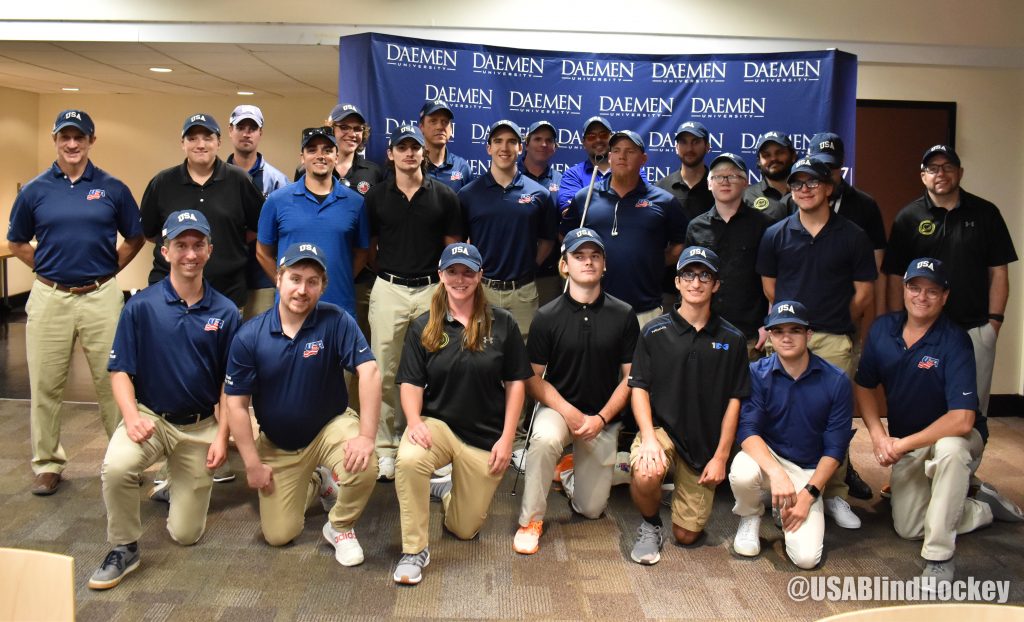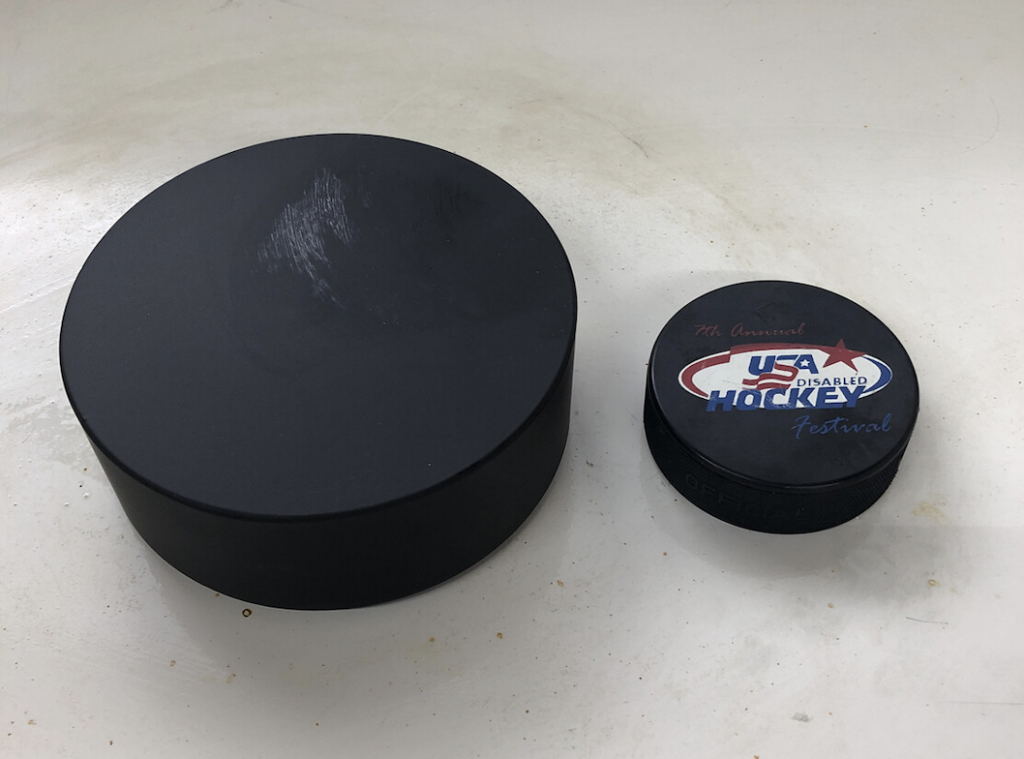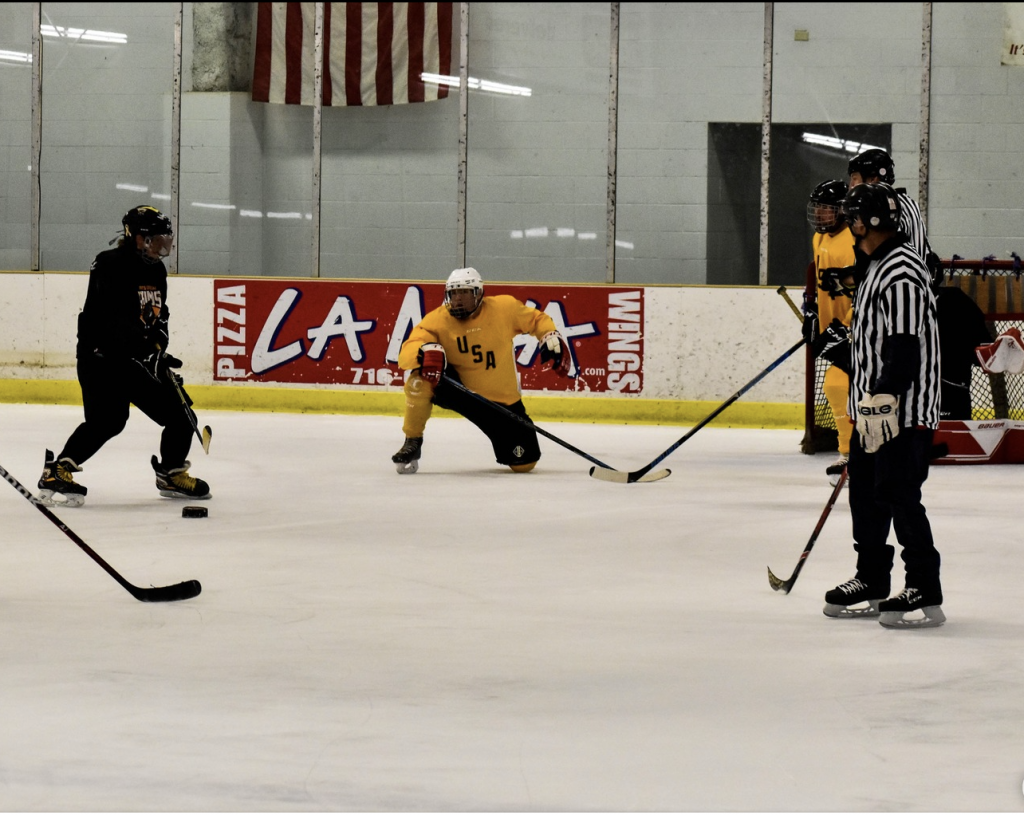The U.S. Blind Hockey Team recently held its national tryouts and camp at Daemen.
Players from around the country stayed in the university’s apartments and ate meals on campus in dining halls. They practiced and scrimmaged at the nearby Northtown Center in Amherst.
The camp was featured in a segment by the CBS affiliate in Buffalo, WIVB.
“You got kids finding their edges,” Andrew Mead-Colegrove, a goalie, told an interviewer at the camp. He has been playing blind ice hockey since 2018.
The sport was not formally organized in the U.S. until 2015, when the first-ever Disabled Hockey Festival introduced blind hockey in the country – at the Northtown Center. 
“This is a homecoming of sorts,” said Bob Mead-Colegrove, an award-winning volunteer for the team and assistant dean for campus safety and operations at Daemen. “We are getting back to our roots. We couldn’t have asked for a better fairy tale-like set up.”
The first blind hockey team was started in Canada in the late 1940’s. While the sport is not yet recognized by the International Paralympic Committee, more countries are starting to field teams.
There are some key differences between the blind and traditional versions of the sport. The puck contains ball bearings and makes loud noises as it’s played around the ice. The puck is also larger – two inches tall, in fact, with a diameter that’s more than double the size of a traditional version.
 Besides the puck, the sport has a few other rule adaptations. Blind hockey nets are shorter than regulation hockey nets, though for this camp the team used some well-placed boards to block off the top part of the nets.
Besides the puck, the sport has a few other rule adaptations. Blind hockey nets are shorter than regulation hockey nets, though for this camp the team used some well-placed boards to block off the top part of the nets.
The game plays as fast paced as sighted hockey, with one other rule change: Players, when entering the offensive zone with the puck, must make one pass to a teammate before they can take a shot on goal. All players on the team are legally blind, and the goalies have no vision, making on-ice verbal communication a key factor for success of the team.
While the camp was supposed to be held in Utica, New York, scheduling conflicts brought the operation to Daemen. While on campus, players and coaches met the public at a meet-and-greet held in the Wick Center.
In October, the team plans to represent the U.S. during a competitive Blind Hockey Series against Canada.
